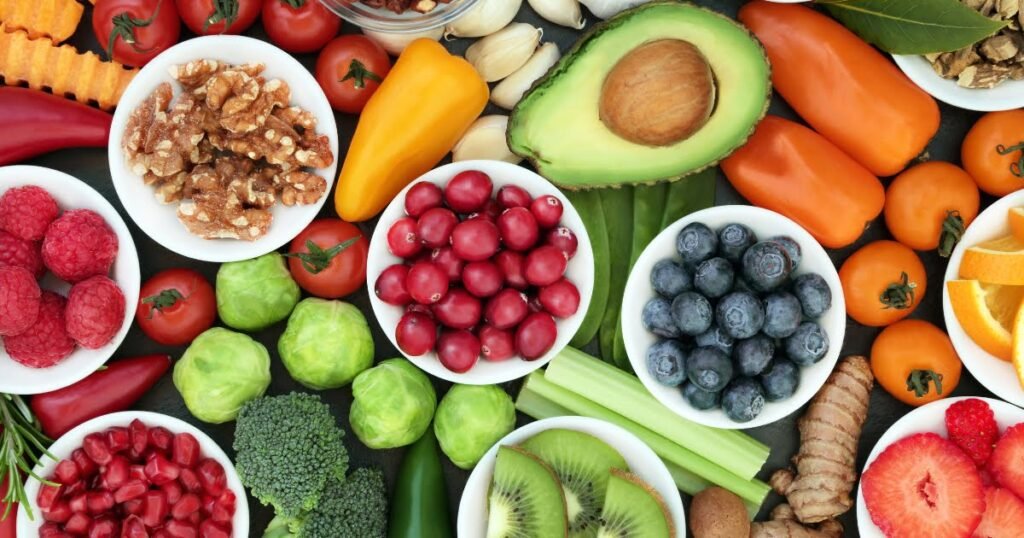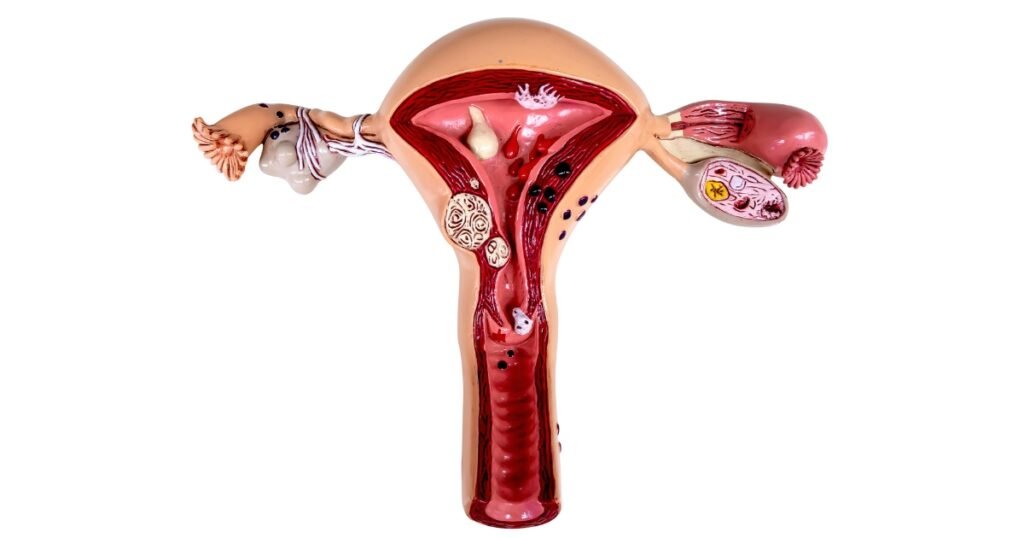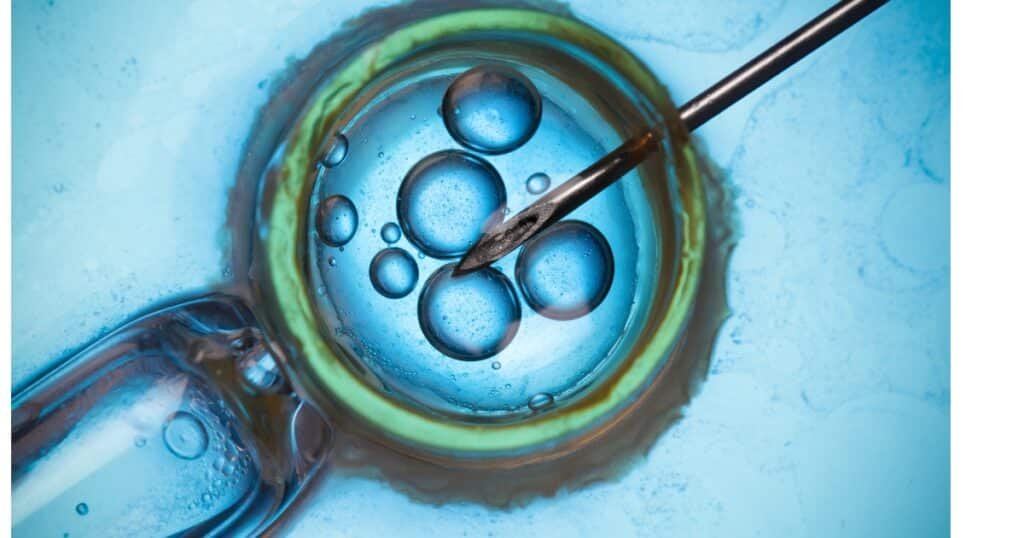Last Updated on 12 June 2024
Today, I want to discuss a topic many of my patients find intriguing and crucial: how to increase follicle size in 2 days. If you are reading this, you are probably on a fertility journey, and I want you to know that you are not alone.
Before we continue, I would like to give you a quick background on who I am. My name is Kerrie Richards, and I am an obstetrician with a special interest in fertility. I remember one of my patients, Clara (not real name), who came to me feeling anxious about her upcoming fertility treatment. She had been trying to conceive for a while and sought ways to maximize her chances. She asked me, “Dr. Richards, is there anything I can do to boost my follicle size quickly?” Sarah’s question is a common one, and the good news is, yes, there are several strategies you can employ.
First, let’s understand why follicle size is important. Follicles are small sacs within your ovaries that contain immature eggs. As these follicles grow, they mature the eggs, preparing them for ovulation. The size and health of these follicles can significantly impact your fertility and the success of fertility treatments like IVF. Understanding how to increase follicle size quickly can benefit couples on their fertility journey. Increasing follicle size can improve the chances of successful IVF and other fertility treatments and enhance natural fertility.
Various factors can influence follicle growth, including hormonal, lifestyle, and medical interventions. Individuals can take proactive steps toward improving their fertility outcomes by understanding these factors and implementing strategies to optimize follicle growth. Remember, every woman’s body is different, and what works for one person may not work for another. It is essential to consult with your healthcare provider before making any significant changes or starting new treatments.
- Understanding Follicle Health and Its Impact on Fertility
- Factors Influencing Follicle Growth
- Nutritional Guidelines to Support Follicle Growth
- Medical Interventions to Increase Follicle Size
- How To Increase Follicle Size In 2 Days Using Natural Remedies and Supplements
- Understanding the Timeline for Follicle Growth
- Preparing for Your Fertility Journey
- Success Stories and Testimonials
- Frequently Asked Questions
Understanding Follicle Health and Its Impact on Fertility
Follicles are small fluid-filled sacs found in the ovaries. They contain immature eggs, also known as egg cells. Each menstrual cycle, a group of follicles is recruited to grow and develop, with one follicle typically becoming the dominant or lead follicle. Hormonal changes during the menstrual cycle influence the growth and development of these follicles.
The health and size of follicles are significant factors in fertility. The size of the follicle at the time of ovulation determines the quality and maturity of the egg it contains. Increasing follicle size can enhance the chances of successful fertilization and implantation, leading to a higher likelihood of pregnancy.
The Role of Follicles in Ovulation
Ovulation, the release of a mature egg from the ovary, is a crucial step in the fertility process. The largest and most mature lead follicle in the group plays a vital role in ovulation. As the lead follicle grows, it produces increasing levels of estrogen, a hormone that stimulates the release of luteinizing hormone (LH) from the pituitary gland. The surge in LH triggers the release of the mature egg from the follicle, allowing it to be fertilized. Monitoring follicle size during the menstrual cycle is essential to determine the timing of ovulation. The size of the lead follicle, typically around 18-20mm in diameter, indicates that the egg is mature and ready for release.
How Follicle Size Affects Egg Quality
The size of the follicle directly impacts the quality of the egg it contains. Larger follicles tend to produce better-quality eggs, which are more likely to fertilize and result in a viable embryo. The quality of the egg is a critical factor in the success of fertility treatments such as IVF.
During IVF, the goal is to retrieve sufficient mature eggs for fertilization. The size of the follicles at the time of egg retrieval determines the maturity and quality of the eggs. By increasing follicle size, individuals can improve the chances of retrieving more mature and high-quality eggs, increasing the chances of successful embryo transfer and pregnancy.
Factors Influencing Follicle Growth
Follicle growth is influenced by various factors, including hormone levels and lifestyle factors. Hormonal influences, such as estrogen and follicle-stimulating hormone (FSH) levels, play a significant role in follicular growth and development. Lifestyle factors, including diet, exercise, and stress levels, can also impact follicle size and fertility.
Understanding and optimizing these factors can help individuals increase follicle size and improve their chances of successful fertility treatments. By making targeted lifestyle changes and considering medical interventions, individuals can take proactive steps toward optimizing follicle growth.
Hormonal Influences on Follicle Development
Hormonal levels play a crucial role in follicle development. Throughout the menstrual cycle, levels of estrogen and FSH fluctuate, stimulating the growth and development of follicles. The rise in estrogen levels during the follicular phase of the menstrual cycle promotes follicle growth and prepares the body for ovulation.
In fertility treatments like IVF, hormonal medications stimulate the ovaries and increase the number of follicles available for retrieval. These medications help regulate hormone levels and promote follicle growth. Fertility specialists can optimize follicle growth and improve treatment outcomes by closely monitoring hormone levels and adjusting medication dosages.
Lifestyle Factors and Their Impact on Follicle Size
Lifestyle factors, including diet, exercise, and stress levels, can impact follicle size and fertility. A healthy diet rich in nutrients, particularly antioxidants and omega-3 fatty acids, can support follicle growth and development. Regular exercise can improve blood flow to the ovaries and promote follicle maturation.
Managing stress levels is also crucial for optimizing fertility outcomes. Chronic stress can negatively impact hormone levels and interfere with follicle growth. Implementing stress-management techniques such as meditation, yoga, or counseling can help individuals create a conducive environment for follicle growth.
By incorporating healthy lifestyle practices, individuals can create an optimal environment for follicle growth and improve their chances of successful fertility treatments.
Nutritional Guidelines to Support Follicle Growth
Nutrition plays a vital role in supporting follicle growth and optimizing fertility. A well-balanced diet rich in essential vitamins and minerals can provide the necessary nutrients for follicle development. Key nutrients for follicle growth include antioxidants, omega-3 fatty acids, vitamin D, and folate.
Including fruits, vegetables, whole grains, lean proteins, and healthy fats in the diet can provide a wide range of essential nutrients. It is also important to stay hydrated by drinking adequate water. Following these nutritional guidelines can support follicle growth and improve overall fertility outcomes.
Vitamins and Minerals Essential for Healthy Follicles
Certain vitamins and minerals play a critical role in supporting healthy follicle development. Vitamin D is essential for follicle health and has been linked to improved IVF success rates. Folate, a B-vitamin, is crucial for DNA synthesis and cell division, supporting the growth and development of follicles.
Other important nutrients for follicle health include antioxidants such as vitamins C and E, which help protect the eggs from oxidative stress, and omega-3 fatty acids, which have been shown to improve ovarian function and follicle development.

Including foods rich in these vitamins and minerals, such as leafy greens, citrus fruits, nuts, seeds, and fatty fish, can provide the necessary nutrients for healthy follicle growth.
Foods to Include in Your Diet for Optimal Follicle Growth
Incorporating specific foods into your diet can support optimal follicle growth. Some foods that are beneficial for follicle development include:
- Leafy greens: Spinach, kale, and other leafy greens are rich in antioxidants and vitamins that support follicle health.
- Berries: Blueberries, strawberries, and raspberries are packed with antioxidants that help protect the eggs from oxidative stress.
- Citrus fruits: Oranges, lemons, and grapefruits are high in vitamin C, which supports follicle development.
- Nuts and seeds: Almonds, walnuts, and flaxseeds are excellent sources of omega-3 fatty acids, which promote hormonal balance and follicle growth.
- Fatty fish: Salmon, mackerel, and sardines are rich in omega-3 fatty acids and vitamin D, both of which support follicle health.
Including these foods in your diet can provide the necessary nutrients for optimal follicle growth and improve your chances of successful fertility treatments.
Medical Interventions to Increase Follicle Size
In some cases, medical interventions may be necessary to increase follicle size. Fertility medications, such as gonadotropins, are commonly used to stimulate the ovaries and promote follicle growth. These medications can help increase the number and size of follicles available for retrieval.
In certain situations, procedures such as ovarian stimulation may be recommended to enhance follicle growth. Ovarian stimulation involves using medication to induce the ovaries to produce multiple mature follicles. This can be particularly beneficial for individuals undergoing IVF or intrauterine insemination (IUI).
Working closely with a fertility specialist allows individuals to explore medical interventions tailored to their specific needs and optimize follicle growth.
Common Fertility Medications and Their Effects on Follicles
Several fertility medications can stimulate follicle growth and increase follicle size. Some commonly prescribed medications include:
- Clomiphene citrate: This medication stimulates the release of FSH, promoting follicle growth and ovulation.
- Gonadotropins: These medications contain FSH and LH and are used to stimulate the ovaries and increase the number of mature follicles.
- Letrozole: This medication inhibits estrogen production, leading to increased FSH production and follicle growth.
- Human chorionic gonadotropin (HCG): This hormone triggers the final maturation and release of the eggs from the follicles.
These medications are typically prescribed based on individual needs and treatment plans. They can help increase follicle size and improve the chances of successful fertility treatments.
Procedures That Can Stimulate Follicle Growth
Certain procedures can stimulate follicle growth in addition to fertility medications. One such procedure is the IVF cycle, which involves retrieving multiple mature eggs for fertilization. During the IVF process, the ovaries are stimulated using medications to encourage the growth of multiple follicles containing eggs.
Another procedure that can stimulate follicle growth is intrauterine insemination (IUI), where sperm is directly introduced into the uterus to increase the chances of fertilization. In both IVF and IUI, the goal is to optimize follicle growth and increase the chances of successful fertilization and pregnancy.
Working closely with a fertility specialist can help individuals determine the most appropriate procedures to stimulate follicle growth based on their specific fertility needs.
How To Increase Follicle Size In 2 Days Using Natural Remedies and Supplements
In addition to medical interventions, natural remedies and supplements can support follicle growth. Some natural remedies and supplements that have been found to promote follicle development include:
- Herbal supplements: Certain herbs, such as chasteberry and maca root, have been traditionally used to support female reproductive health and stimulate follicle growth.
- Acupuncture: This traditional Chinese medicine practice has been shown to improve ovarian function and promote follicle growth.
- Lifestyle changes: Making healthy lifestyle choices, such as managing stress levels, regular exercise, and maintaining a balanced diet, can also support follicle development.
It is important to consult with a healthcare professional before starting any natural remedies or supplements to ensure they are appropriate for your situation.
Herbal Supplements Known to Support Follicle Health
Herbal supplements have been used for centuries to promote overall health and well-being, including reproductive health. Certain herbs have shown promising results when it comes to supporting follicle health. One such herb is vitex or chaste tree berry, commonly used to regulate hormones and stimulate ovulation. Another herb is red raspberry leaf, known for its ability to strengthen the uterus and improve blood flow to the ovaries.
Maca root is another popular herb that supports hormonal balance and increases fertility. Additionally, dong quai, black cohosh, and evening primrose oil are often recommended for their potential to enhance follicle development and increase follicle size. However, it is important to consult with a healthcare professional before starting any herbal supplements to ensure they are safe and suitable for your needs.
Lifestyle Changes to Enhance Follicle Growth
Certain lifestyle changes can significantly improve follicle growth and enhance fertility. One of the most important changes is maintaining a healthy diet. Eating a balanced diet rich in vitamins C, E, and B-complex and minerals like zinc and selenium can support healthy follicle development. Regular exercise is crucial as it improves blood circulation to the ovaries and promotes hormonal balance. Managing stress levels through relaxation techniques like yoga, meditation, or acupuncture can also positively impact follicle growth.

Additionally, avoiding smoking, excessive alcohol consumption, and exposure to toxins can help protect the health of your follicles. It is important to remember that these lifestyle changes may take time to show results, so patience and consistency are key.
Understanding the Timeline for Follicle Growth
Follicle growth is a dynamic process that occurs during the menstrual cycle. On average, the menstrual cycle lasts about 28 days, with follicle growth occurring in specific stages. Multiple follicles grow and develop in the ovaries during the first few days of the cycle. Around day 14 of the cycle, one dominant follicle grows while the other regresses. This dominant follicle reaches its peak size and maturity around day 14-16, just before ovulation. Understanding this timeline is crucial for optimizing the chances of successful fertilization and conception.
Normal Follicle Growth Rates
During a normal menstrual cycle, follicles grow at a predictable rate. On average, a follicle increases in size by about 1-3 millimeters per day. By day 14-16 of the cycle, the dominant follicle reaches a size of approximately 18-22 millimeters, indicating that it is ready for ovulation. It is important to note that these growth rates may vary slightly from person to person and can be influenced by factors such as age and overall ovarian health. Monitoring follicle growth through regular ultrasound examinations can provide valuable information about the timing of ovulation and optimize the chances of successful fertilization.
How to Measure and Track Follicle Size
Measuring and tracking follicle size is done through regular ultrasound examinations. During these examinations, a healthcare professional will use a transvaginal ultrasound probe to visualize the ovaries and measure the diameter of the follicles. The measurements are typically recorded in millimeters and can be used to track the growth of the follicles over time. To monitor follicle growth, multiple ultrasound examinations may be performed throughout the menstrual cycle. The following table presents a general overview of typical follicle sizes on each day of an 11-day ovarian stimulation period:
| Day of IVF Cycle | Typical Follicle Size (mm) |
| 1-3 | 5-10 |
| 5-7 | 10-14 |
| 9-11 | 14-18 |
| 12-14 | 18-22 |
It is important to note that these values are approximate and can vary from person to person. Consulting with a healthcare professional is essential for personalized advice and accurate tracking of follicle size.
Preparing for Your Fertility Journey
Preparing for your fertility journey involves setting realistic expectations and seeking professional help when needed. It is important to understand that increasing follicle size in two days is challenging and may not always be achievable. Having realistic expectations can help reduce stress and disappointment along the way. Seeking professional help from a fertility specialist is crucial for personalized guidance and support. A fertility specialist can assess your situation, recommend appropriate treatments or interventions, and monitor your progress to optimize your chances of success. Remember, every fertility journey is unique, and professional guidance can make a significant difference.
Setting Realistic Expectations for Follicle Growth
When it comes to follicle growth, setting realistic expectations is essential. It is important to understand that follicles do not typically increase in size significantly within just two days. While it is possible to optimize follicle growth through lifestyle changes, nutritional guidelines, and medical interventions, it usually takes time for follicles to reach maturity.
Your fertility specialist will work closely with you to develop a personalized treatment plan that considers your individual needs and goals. This plan may involve ovarian stimulation medications, regular monitoring of follicle growth through ultrasound examinations, and the timing of the trigger shot and egg retrieval procedure. Understanding the timeline and potential challenges of follicle growth can help you set realistic expectations and stay committed to your treatment plan.
When to Seek Professional Help
If you are struggling to increase follicle size or facing challenges in your fertility journey, it may be time to seek professional help from a fertility specialist. A fertility specialist is a healthcare professional with specialized knowledge and expertise in reproductive medicine. They can assess your individual situation, conduct necessary tests and examinations, and recommend appropriate treatment options.
Seeking professional help is especially important if you have been trying to conceive for a prolonged period of time without success or if you have any underlying medical conditions that may impact fertility. A fertility specialist can provide valuable guidance, support, and access to advanced treatment options such as in vitro fertilization (IVF), intrauterine insemination (IUI), or other fertility interventions tailored to your specific needs.
Success Stories and Testimonials
Success stories and testimonials from individuals who have successfully increased follicle size and achieved their fertility goals can provide hope and inspiration to others on their journey. Many individuals have shared their stories of quick improvements and successful outcomes after undergoing fertility treatments. These success stories highlight the importance of personalized treatment plans, professional guidance, and perseverance. While every individual’s fertility journey is unique, hearing about the experiences of others can offer encouragement and motivation. It is important to remember that what works for one person may not work for another, and seeking professional help is crucial for personalized guidance and support.
Real-life Experiences of Increasing Follicle Size Quickly
Individuals who have experienced quick improvements in follicle size often share their real-life experiences to inspire and offer hope to others on their fertility journey. These experiences can range from lifestyle changes and nutritional guidelines to medical interventions and treatments. Some individuals have reported significant increases in follicle size within a short period of time after implementing changes such as dietary modifications, exercise routines, and stress management techniques. However, it is important to note that everyone’s fertility journey is unique, and what works for one person may not work for another. Consulting with a fertility specialist and following a personalized treatment plan is crucial for achieving the best possible outcomes.
Lessons Learned from Successful Fertility Treatments
Successful fertility treatments can provide valuable lessons and insights for individuals on their own fertility journey. Those who have achieved their desired outcomes often share their experiences to help others navigate the challenges and uncertainties of fertility treatments. Some common lessons learned include the importance of patience, resilience, and emotional support throughout the process.
It is also important to be open to exploring different treatment options, seeking second opinions, and staying informed about the latest advancements in reproductive medicine. Additionally, maintaining a positive mindset, practicing self-care, and leaning on support networks can make a significant difference in the fertility journey. Each person’s path to success is unique, and drawing inspiration from others can offer guidance and motivation.
In conclusion, understanding how to increase follicle size is crucial for optimizing fertility. By focusing on hormonal balance, lifestyle adjustments, proper nutrition, and considering medical interventions, you can positively impact follicle health. Remember to set realistic expectations, seek professional guidance when needed, and track your progress diligently. Patience and consistent effort are key in this journey toward enhancing follicle growth and improving your chances of conception. Stay informed, stay proactive, and trust in the process as you embark on your fertility journey.









